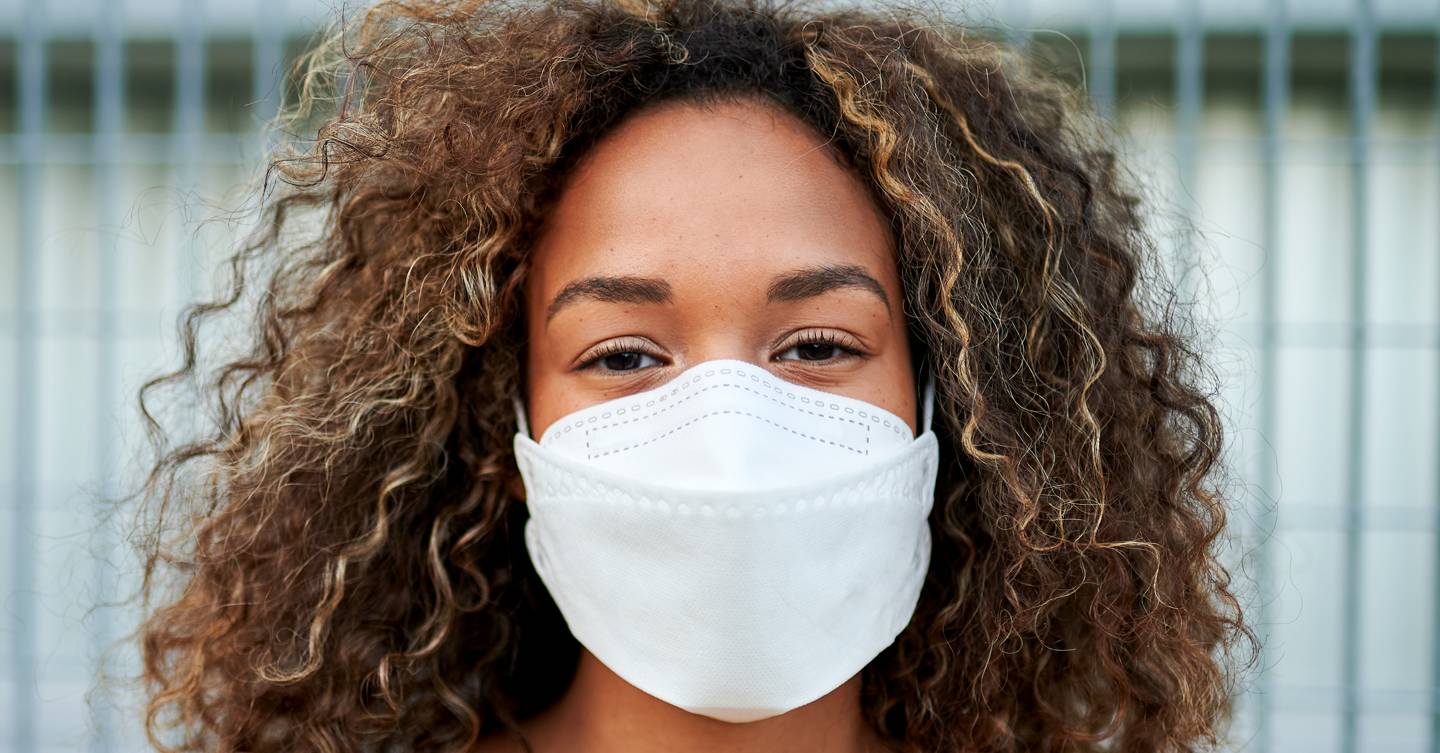I have never obsessed about my skin as much as I have during lockdown. Besides from the fact that wearing a mask has presented its very own newfound skin issues (hello, maskne), there’s also the fact that I spend most of the day staring at myself on Zoom. And I’m not looking at my camera-ready face (slightly at an angle, head tilted to the side, hair pinched forward). No, this is my filter-free face in dynamic movement. I am confronted with every weird expression I make when talking and have noticed nervous ticks I never realised I had. Before I’ve had my morning coffee, I’m staring at a hard dose of skin-reality – whether my skin looks dull, my complexion tired, or my cheeks saggy.
It appears I’m not alone. Dr Uliana Gout, skincare, aesthetics and wellness expert, President of the British College of Aesthetic Medicine and founder of London Aesthetic Medicine (LAM) Clinic, has identified the phenomenon of ‘skinxiety’, which is the culmination of all our beauty-related woes that have arisen as a result of the pandemic as well as how they are affecting our mental health. “2020 has been a challenge to most of our patients when it came to skincare and skin health – mainly due to the effects of Coronavirus, lockdown restrictions and the recent ‘Maskne’ & ‘Zoom-face’ phenomenons. Globally our medical community has noted a rise in patients seeking help and advise on a number of skin concerns, spanning across a range of issues including dullness, open pores, congestion, spots, blemishes, pigmentation, and redness,” she says. “The pandemic has pushed us all into a frenzy of over-purchasing and a virtual existence where we are constantly being sold new innovations, products and ideas. Sadly, many people fail to see that ad-hoc purchases with no medical guidance often are a waste of money and time, resulting in further ‘skinxiety’ given they at best don’t work much of the time but at worst, they can exacerbate existing conditions.”
To help address and alleviate these issues, LAM Clinic is introducing a range of tailored signature treatments including their signature Spot & Blemish Medical Facial, which combines alpha and beta hydroxy molecules to purify, exfoliate, clear blemished congested skin, as well as an array of Radio Frequency treatments, which can be prescribed following a hyper-personalised consultation to assess each client’s unique circumstances and concerns. “We take time to get to know each person to really diagnose the skin, with the goal to improve not only the physical appearance, revealing their natural beauty, but to also boost their self-esteem and mental wellbeing.” she explains.
While many clinics have experienced a rise in the number of enquiries relating to non-surgical cosmetic treatments such as Botox and dermal fillers, there’s also been a number of requests for minimally invasive options that focus on skin’s health. “We’ve had a huge surge in people requesting appointments for Botox and fillers, but we’ve also noticed a rise in popularity for our skin-boosting treatments like our Mesolift mesotherapy,” says Dr Benjamin Kauffholz, co-founder and partner at Dr Dray Clinic London. Mesotherapy involves injecting a bespoke cocktail of potent skincare ingredients into the skin multiple times, using an air-pressure gun. The microscopic needle allows the ingredients to target the deeper layers of the skin, but the micro-injury it causes also stimulates the skin’s natural healing process and boosts collagen production. “It instantly improves the skin quality as well as deeply hydrates,” notes Dr Benjamin Kauffholz. “It’s one of our most popular and most transformative treatments and has no downtime.”
While many have been left feeling anxious and self-conscious about their skin, others have found lockdown to be an opportunity for empowerment and education. “We have a huge number of people who have used lockdown as an opportunity to address their skincare concerns, experiment with new products, and share their findings,” says Tom Allison, co-founder of cult skincare brand CeraVe. “Platforms like TikTok have been a popular way of connecting with others during the pandemic, and with little else to do in our free time, we’re creating more content than ever.” This has resulted in a rise of the Gen-Z skinfluencers; the self-educated, skincare gurus who share their product reviews to millions of followers. “If there’s one positive thing to come out of this, it’s the realisation that we can all be here for one another, whether your concern is skincare related, or otherwise,” says Tom.
Find out more about how to take care of your mental health during the pandemic here.
For more from Glamour UK Beauty Editor Lottie Winter follow her on Instagram @Lottieawinter
